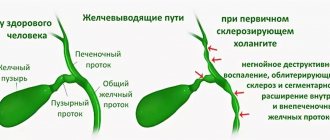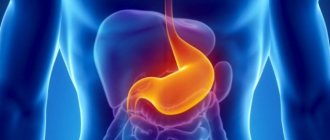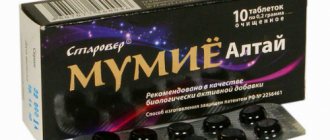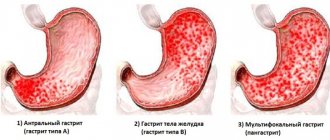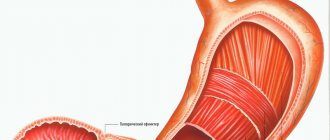Erythematous gastritis is a form of chronic inflammation of the stomach. It develops gradually and has its own characteristic features. To understand what erythematous gastritis is, you should decipher the concept of erythema . Literally translated from Greek, the term ἐρυθρός means red. In medicine, erythema is the redness of the skin or mucous membranes caused by vasodilation.
In relation to gastritis, the term is used when, during an endoscopic examination of the stomach, the doctor sees diffuse or limited hyperemic areas on the gastric mucosa. In some cases, pinpoint hemorrhages or small erosions are found in the area of erythematous inflammation. Such pathological inclusions can ooze, releasing colorless or pinkish ichor, then we are talking about erythematous exudative gastritis.
Kinds
Depending on the manifestation of the disease, erythematous gastritis is of several types:
- superficial erythematous gastritis is considered to be the initial stage, which without proper treatment can aggravate the condition and progress to a more serious stage of development. The lining surface of the gastric mucosa becomes inflamed and begins to change;
- focal gastritis is characterized by point manifestations of inflammation in various parts of the digestive organ. If the lesion occurs in the antrum of the stomach, then if left untreated, peptic ulcer disease is possible. This area is adjacent to the duodenum and maintains a normal acidic environment. Antral gastritis slows down the functions of this section and causes stagnation and fermentation of undigested food;
- Erythematous exudative gastritis is characterized by damage to the entire mucous membrane of the organ or most of it. The disease can be caused by parasites or foreign food proteins that cause allergic reactions. The disease develops against the background of the presence of superficial and atrophic gastritis. The second name for this type of disease is eosinophilic gastritis. It is named so due to the accumulation of eosinophils on the mucous membrane, which should not be there at all;
- Pangastritis is the most advanced form, characterized by total damage to the entire area of the stomach.
https://youtu.be/f4hSRMfxiRg
Symptoms
The symptoms exhibited by this type of gastritis are similar to other stomach diseases:
- Heartburn often occurs.
- Painful sensations in the stomach, heaviness, discomfort, mainly appearing after eating.
- Nausea after eating.
- Burning sensation when the stomach is empty.
- Decreased or lack of appetite.
- Belching with an unpleasant taste in the mouth, a thick white coating on the tongue.
- Frequent bowel disorders.
- General weakness, weight loss.
- Irritability, frequent fatigue.
- Slight increases in body temperature.
If the listed signs are detected, you should seek professional medical help; the erythematous type of gastritis is easier to treat if detected in a timely manner.
Symptoms of diseases of the digestive system always have a debilitating effect on the body, weakening the body and spirit of a person.
Reasons for appearance
Erythematous gastritis can occur for one or, most often, a combination of several reasons, such as:
- stress, depression, overwork;
- metabolic disease;
- poor nutrition;
- abuse of alcohol and tobacco products;
- side effect of medications;
- infections, Helicobacter;
- hereditary predisposition;
- the occurrence of gastritis against the background of another disease.
The progression of the disease is individual and will largely depend on the body’s immune system, a person’s lifestyle, and the presence of other concomitant ailments.
Causes of erythematous gastritis of the stomach
Diseases of the digestive system occur due to a large number of factors, since in case of any malfunction in the body, the gastrointestinal tract suffers first. When gastritis occurs, the following reasons play an initial role:
- constant nervous tension, stressful situations, sleep disturbances;
- the use of heavy medications, often without the knowledge of the doctor;
- violation of nutritional culture, habit of eating dry food;
- damage to the body by pathogens - viruses and bacteria;
- genetic predisposition to the disease.
Sometimes several reasons are enough for the disease to make itself felt, therefore, if a person has a predisposition to gastritis, it is worth adjusting his daily routine and taking more care of his health.
Diagnostics
The symptoms of this form of chronic gastritis are similar to those of its other varieties, so only a doctor can accurately diagnose and identify the type of erythematous gastritis after conducting an appropriate examination.
The disease is detected by a specialist through probe endoscopy. Considering the fact that this form of the disease can be a precursor to erosive or ulcerative gastritis, an ultrasound of the abdominal organs, a study of the level of gastric pH, and a general biochemical blood test may also be prescribed.
Why does the disease develop?
Neglect of treatment leads to progression of the disease and the formation of bleeding ulcers.
The reasons that provoke the development of erythematous gastritis include:
- frequent stress;
- side effects of a number of medications (hormones, antibiotics, NSAIDs);
- poor nutrition;
- long breaks between meals;
- eating very hot foods and drinks;
- genetic characteristics of the organism;
- failure in metabolic processes;
- infectious diseases;
- bad habits;
- pathological change in the microflora of the gastrointestinal tract.
Treatment and diet
If erythematous gastritis is diagnosed, drug treatment is prescribed along with diet. Depending on what type of disease has been identified and in what form it occurs—acute or chronic—a complex of appropriate medications is prescribed. The patient must give up bad habits, as well as foods that irritate the gastric mucosa. You should absolutely not use:
- spicy, fried, fatty foods;
- spices, smoked meats, highly salted foods;
- strong tea, coffee, alcohol, carbonated drinks;
- products containing dyes and other unnatural substances.
In addition to all of the above, depending on the severity of the disease and acidity, many products may be prohibited, such as milk, meat, legumes, and baked goods.
It is preferable to steam food and consume it warm. Eating too hot or cold irritates the gastric mucosa, as does smoking, which should also be stopped. It is recommended to eat split meals, in small portions 5-6 times a day. The duration of the diet and the entire course of treatment will depend on the degree of advanced disease.
Medical therapy
It is better to treat erythematous gastritis comprehensively with the use of medications, traditional methods, and diet. A full therapeutic course will relieve unpleasant symptomatic signs and eliminate the possibility of complications.
Drug treatment
Medicines should be taken as directed by a specialist. Prescribed drugs for the erythematous form of the disease have recommendations for use:
- antispasmodics - pain relief;
- antibacterial drugs – removing pathogens, infections, viruses from the body;
- blockers - stopping gagging, nausea, diarrhea;
- inhibitors – lowering acidity levels;
- antacids - relief from heartburn;
- preparations containing enzymes - restoring the balance of internal secretion;
- sedatives – stress relief.
The course of taking medications depends on the age category, the nature of the disease, and the presence of other pathologies of the gastrointestinal tract.
Proper nutrition
For erythematous gastritis, the patient is prescribed a gentle diet. There are rules that must be followed to get rid of the pathology of the digestive system:
- eating small meals frequently throughout the day;
- refusal of food products that can cause mechanical, thermal or chemical damage to the upper layer of the gastric epithelium;
- exclusion of alcohol, tobacco products;
- a balanced, varied diet, including ingredients with sufficient amounts of proteins, fats, and carbohydrates.
For diseases of the gastrointestinal tract, it is strictly forbidden to include spicy, smoked, salted, fried foods, or non-thermally processed foods in the daily menu. All ingredients must be steamed, boiled or baked in the oven.
ethnoscience
To treat exudative gastritis, it is recommended to take herbal decoctions, for example, chamomile. Infusions from medicinal preparations have soothing, healing, and antibacterial effects. The main ingredient for preparing the drink at a low acidity level is cabbage, from which the juice is squeezed, and at a high acidity level, birch bark is used.
Exudative gastritis is a common type of chronic gastric disease. Poor nutrition, a passive lifestyle, and abuse of bad habits have a detrimental effect on the condition of the digestive system. When the first alarming symptoms appear, you must immediately undergo examination to prescribe a course of treatment. Taking medications and diet in combination with traditional methods will help avoid serious complications.
https://youtu.be/3lWZ-4_rXtE
We recommend: Is it possible to eat eggs if you have gastritis? - raw or cooked
Treatment with folk remedies
When choosing therapy using traditional methods of combating the disease, it is necessary to consult a specialist. Only properly selected means can effectively influence the healing process. Herbal decoctions have a beneficial effect on the microflora of the gastrointestinal tract. White cabbage juice is great for low acidity, and birch bark infusion for high acidity.
Comprehensive timely treatment is the key to a speedy recovery. There is no need to wait until a large area of the stomach is affected. It is better to identify and get rid of a mild form of the disease than to subsequently endure excruciating pain and, possibly, be on a diet or, even sadder, drugs for the rest of your life. The disease itself does not go away, but only gets worse, becomes more difficult to treat, and even takes on complex forms that can cause irreparable damage to health.
Disease prevention
The prognosis for antral gastritis is favorable only with timely initiation of treatment, compliance with all recommendations, daily routine and nutrition. If you do not consult a gastroenterologist in time, gastritis becomes diffuse, which can result in the formation of ulcers (with mucosal hyperfunction) or stomach tumors (with mucosal atrophy).
Irregular diet and bad habits can cause the development of gastritis. Therefore, you need to monitor your diet and follow a routine. In addition, smoking and excessive alcohol consumption should be avoided. If possible, you need to avoid stress and be sure to get plenty of rest.
So, erythromatous gastritis is a fairly common pathology. If treatment is started on time, complications can be avoided. But in the absence of adequate therapy, the inflammatory process will only progress. This increases the risk of ulcer formation, gastric bleeding and other conditions that threaten the patient’s life. Therefore, it is strictly not recommended to self-medicate; you should consult a specialist.
Gastropathy of the erythematous type is not dangerous, but requires timely treatment, otherwise it can worsen and, without medical treatment, lead to gastritis, ulcers or gastroduodenopathy.
When the first symptoms appear, timely drug therapy and a proper diet can quickly and completely get rid of the disease.
The concept of gastritis
Gastritis comes in different types and forms. According to the nature of their course, they can be acute or chronic. One of the varieties of a protracted process is considered to be erythematous gastritis.
Erythematous gastritis is a disease of the epithelial lining of the stomach with small, most often bright red rashes in the form of ulcers. As a rule, damage occurs in the lower part of the organ, which, in addition to its motor role, performs the function of reducing acidity during the passage of food chyme into the duodenum.
With this type of gastritis, inflammatory changes are superficial, but despite this, the disease can quickly develop into another form of the disease and cause serious complications.
Erythematous gastritis quickly develops into more dangerous forms
Diet for patients diagnosed with antrum gastritis
The diet of patients with a similar diagnosis should contain a lot of protein foods, while carbohydrate foods should be limited.
Proteins promote rapid healing and restoration of damaged tissue, so it is good to include lean meat and fish, cottage cheese, eggs, and mild cheeses in your diet.
It is better to combine animal proteins with light vegetable side dishes of beets, carrots, zucchini, cauliflower and Chinese cabbage.
Of course, with gastritis, food should be gentle on the mucous membrane, be at room temperature, not spicy or salty, and without acid.
Gentle heat treatment is also useful - cooking, baking, steaming, stewing. It is better to prepare meat products from minced meat, this can be steamed cutlets, zrazy, meatballs.
In the acute period, all dishes are crushed to a puree before serving to the patient; meals should be five to six times a day in small portions.
Foods that can provoke bloating, heartburn, pain are removed from the menu - legumes, cucumbers, radishes, white cabbage, pork, lard, confectionery and yeast products, baked goods, spicy, fatty and fried foods.
As health improves, they gradually change the consistency of the dishes served and expand the diet, but the main prohibitions remain relevant until the end of life, since the chronic course of gastritis is characterized by exacerbations.
The severity and frequency of exacerbations depends on how carefully the diet is followed.
Diet and physical activity, giving up bad habits, and a positive attitude are applicable for any diagnosis, no matter what the antrum gastritis is - superficial, focal or atrophic.
Complaints with gastritis
The signs of all gastritis at the initial stage are almost the same. Patients begin to complain most often when the disease becomes more complicated. During the initial stages of inflammation, as a rule, the symptoms are barely noticeable, which does not raise any particular suspicion about the onset of the disease. When gastritis becomes more serious, the following symptoms are observed:
- loss of appetite;
- nausea in the morning or after eating;
- periodic vomiting;
- violation of bowel regularity;
- pain in the stomach on an empty stomach and a feeling of heaviness after eating;
- belching, heartburn;
- bloating;
- weight loss.
Gastritis is characterized by lack of appetite
With regular disruption of the digestive process, an imbalance occurs in the functioning of other organs. The functioning of the intestines is upset, the liver and pancreas are gradually involved in the process, and anemia develops as a result of impaired absorption of enzymes and microelements. A person begins to feel a loss of strength, a decrease in mood, and surges in blood pressure. When a patient consults a doctor, complaints may already be complex.
The main method of confirming the diagnosis is gastric endoscopy, where you can see local changes in the mucosa and determine the extent and depth of damage to the membrane. It is also necessary to conduct an ultrasound and determine the acidity of gastric juice.
What causes the development of gastritis
The gastric mucosa is subject to various influences of irritating factors, which, with a weak immune system, gradually lead to its destruction. There are some reasons that can cause stomach diseases:
- regular use of medications that have a severe effect on the mucous membrane;
- consumption of alcohol and various products containing components that negatively affect the stomach;
- eating disorder;
- bacteria - causative agents of infections, most often the Helicobacter pylori bacillus;
- hereditary predisposition;
- frequent consumption of hot or cold foods;
- stress and physical strain;
- malfunction of the digestive glands.
Hot food can cause stomach inflammation



